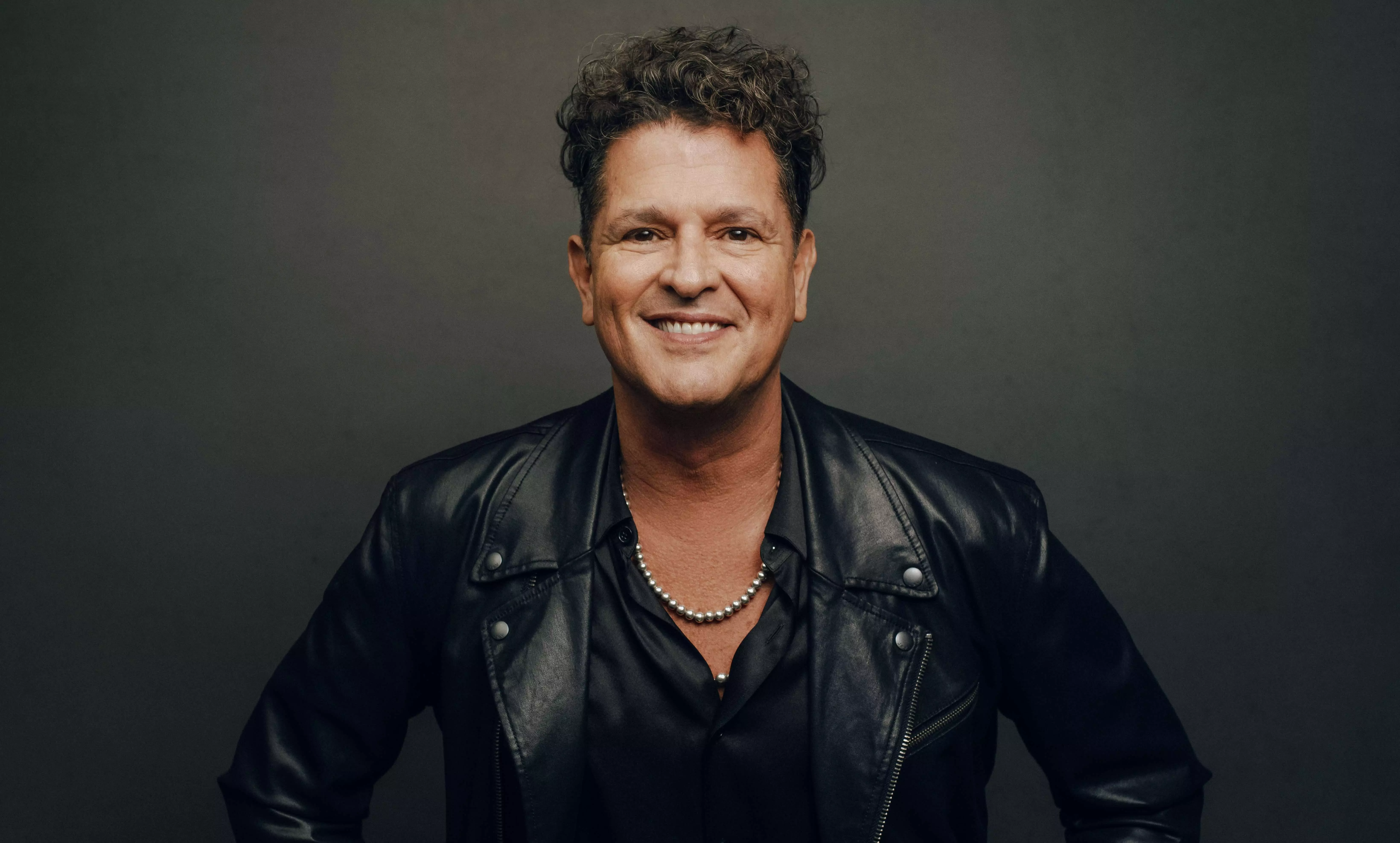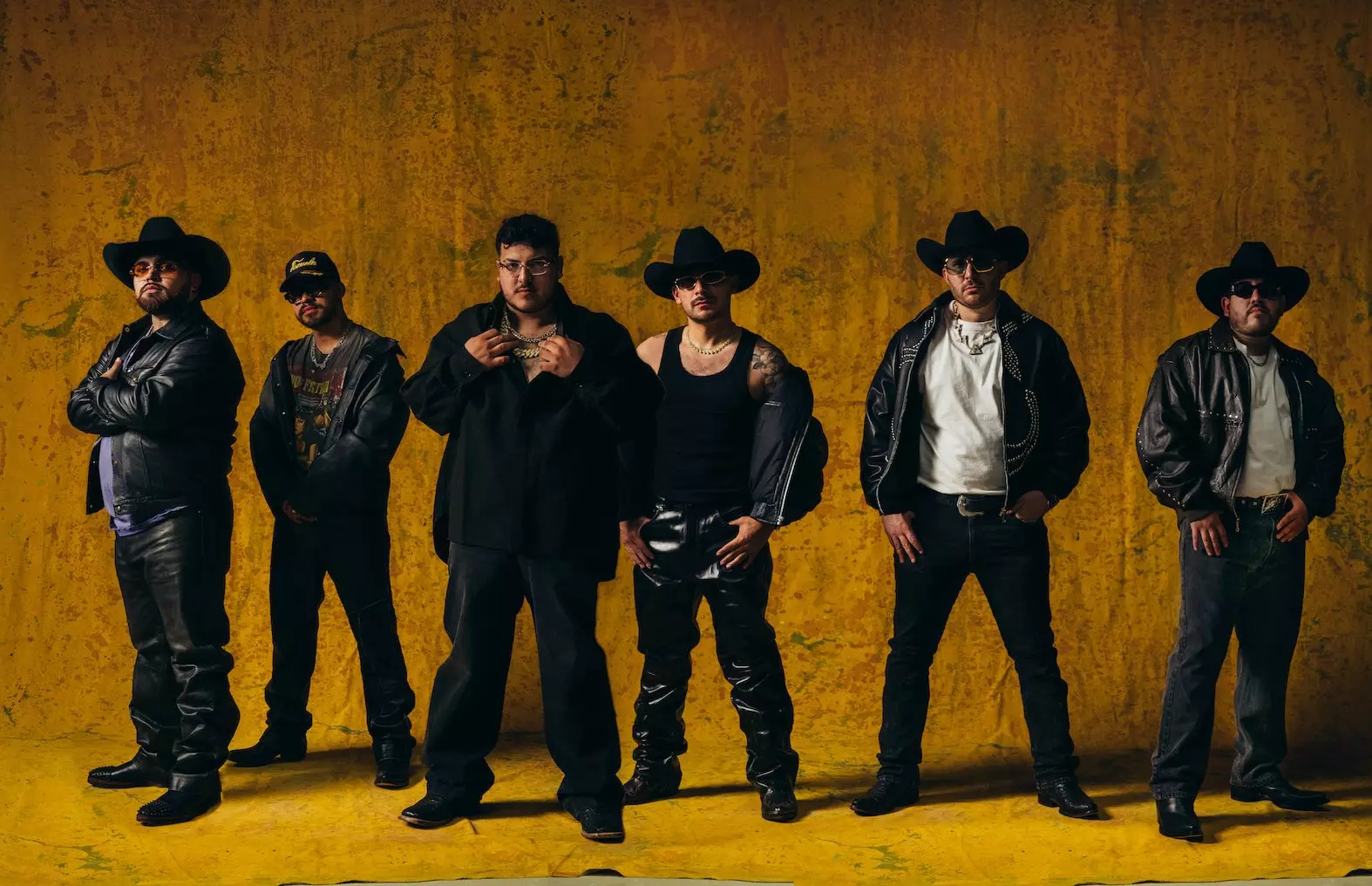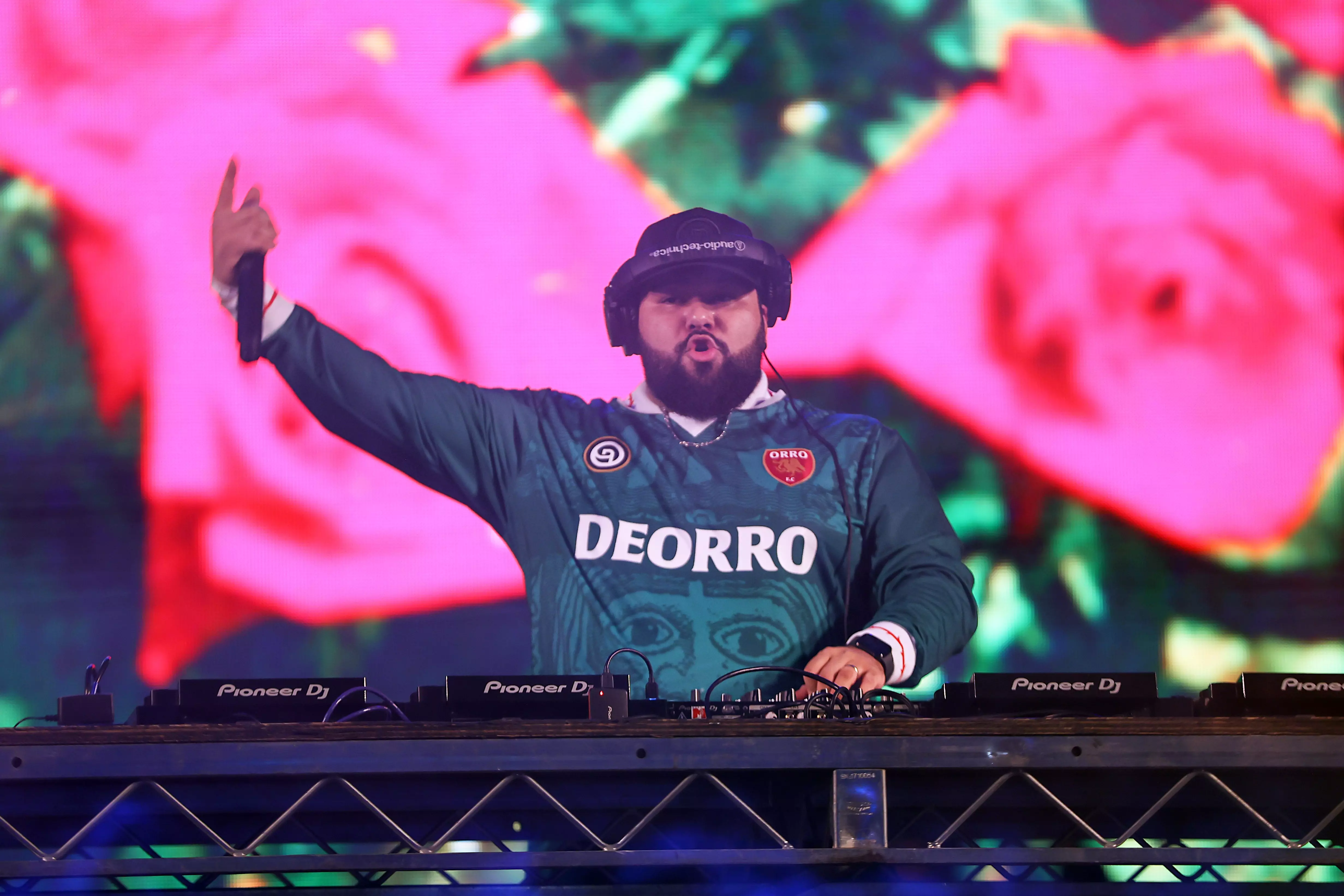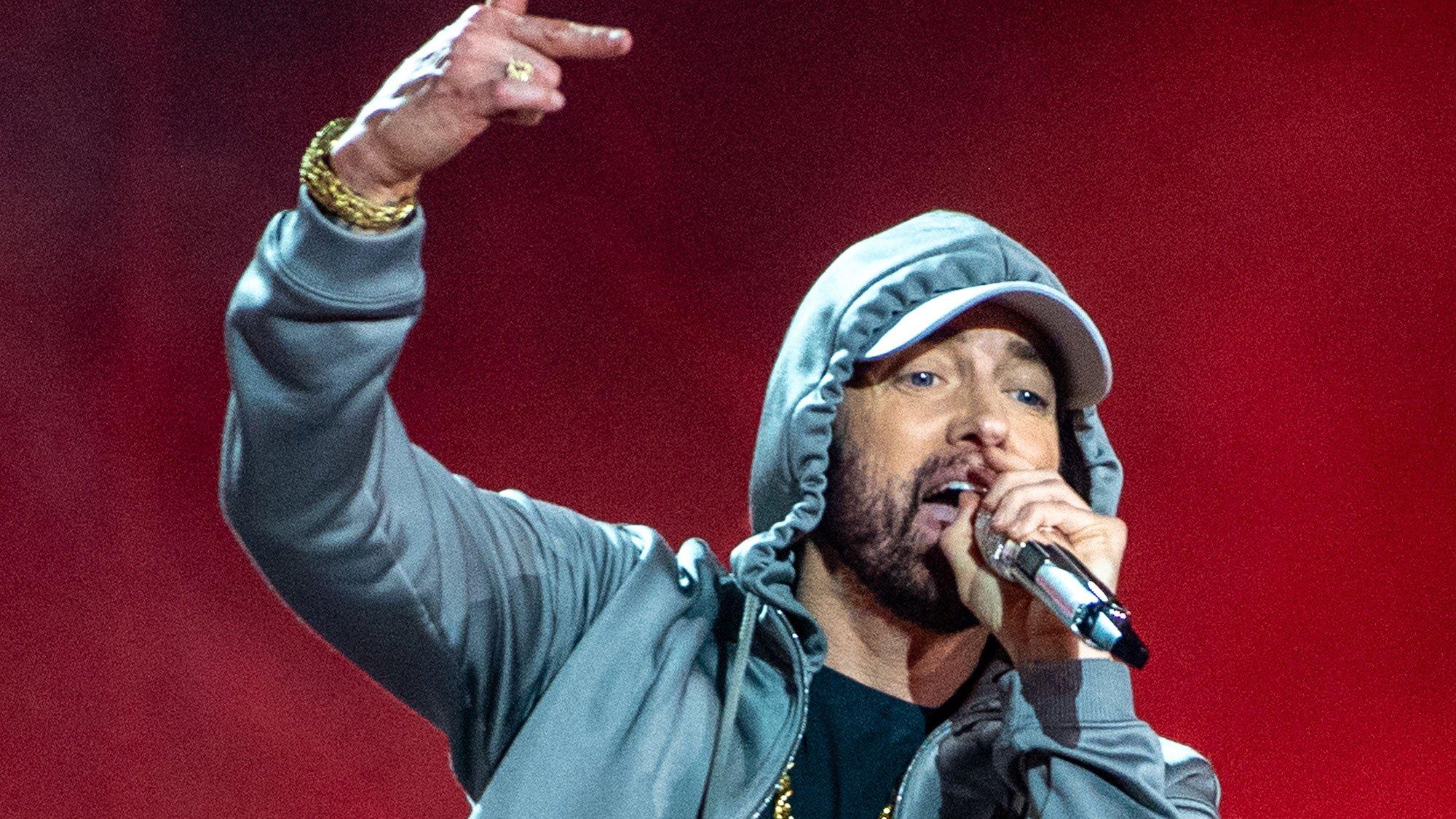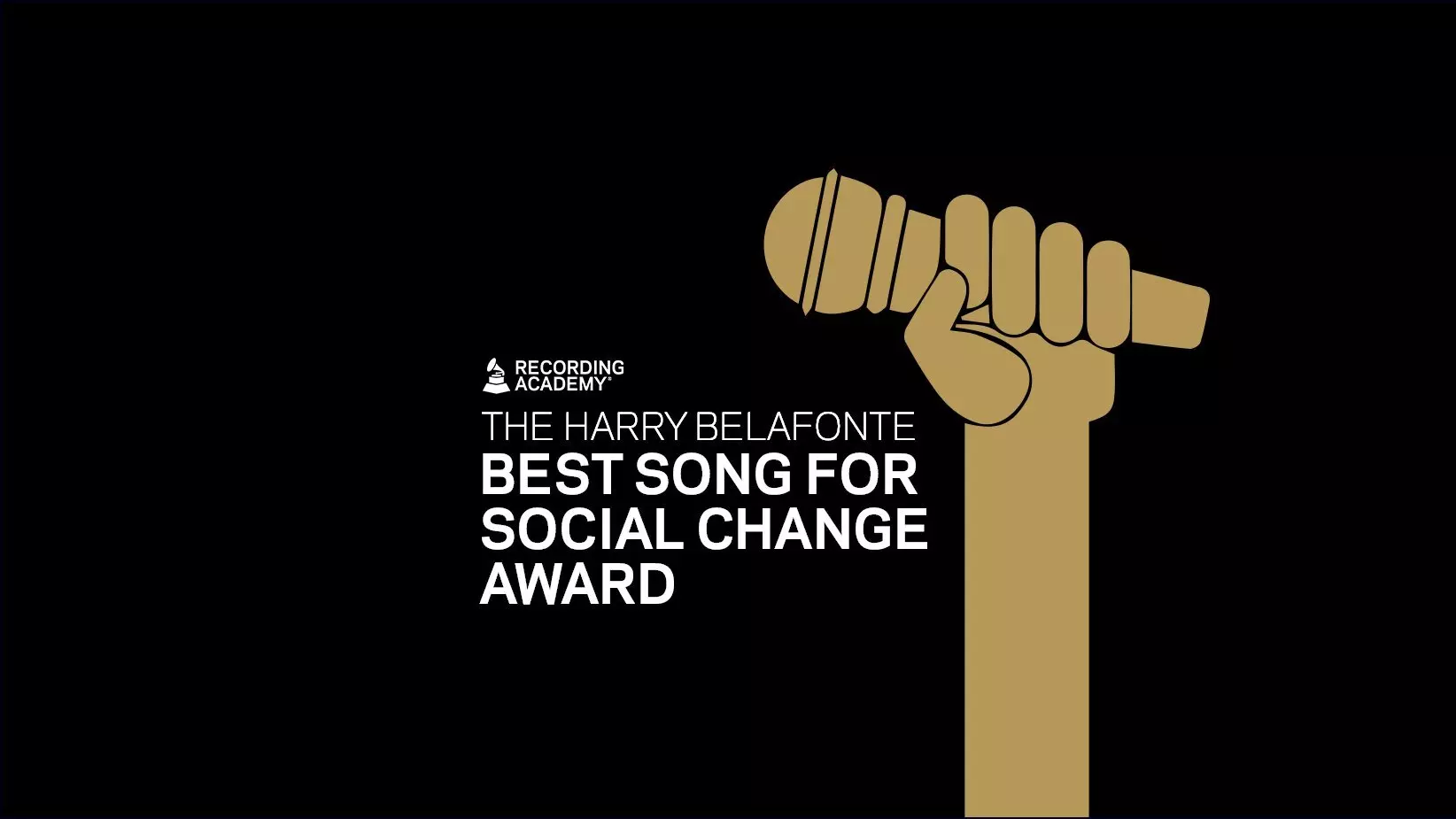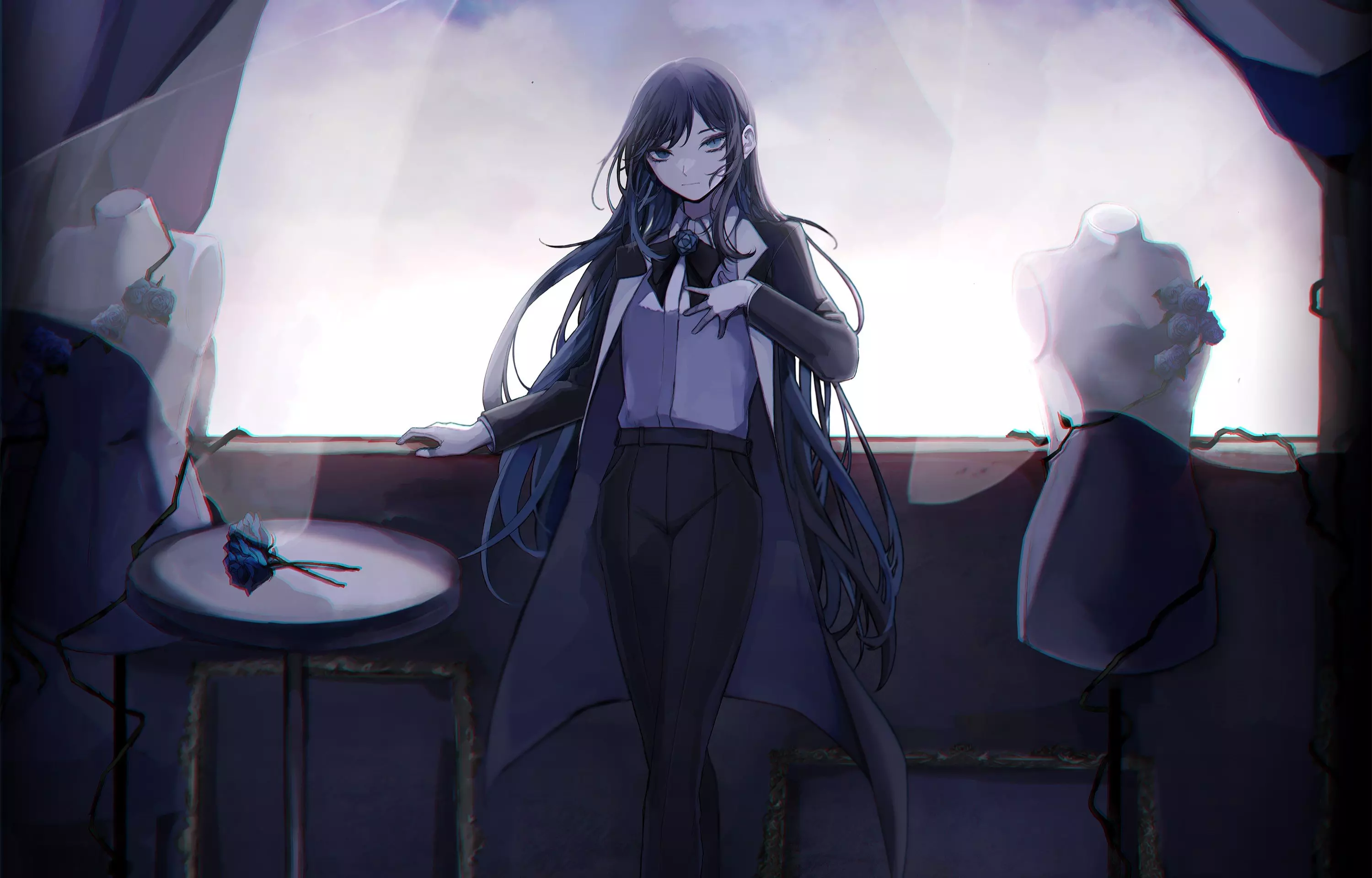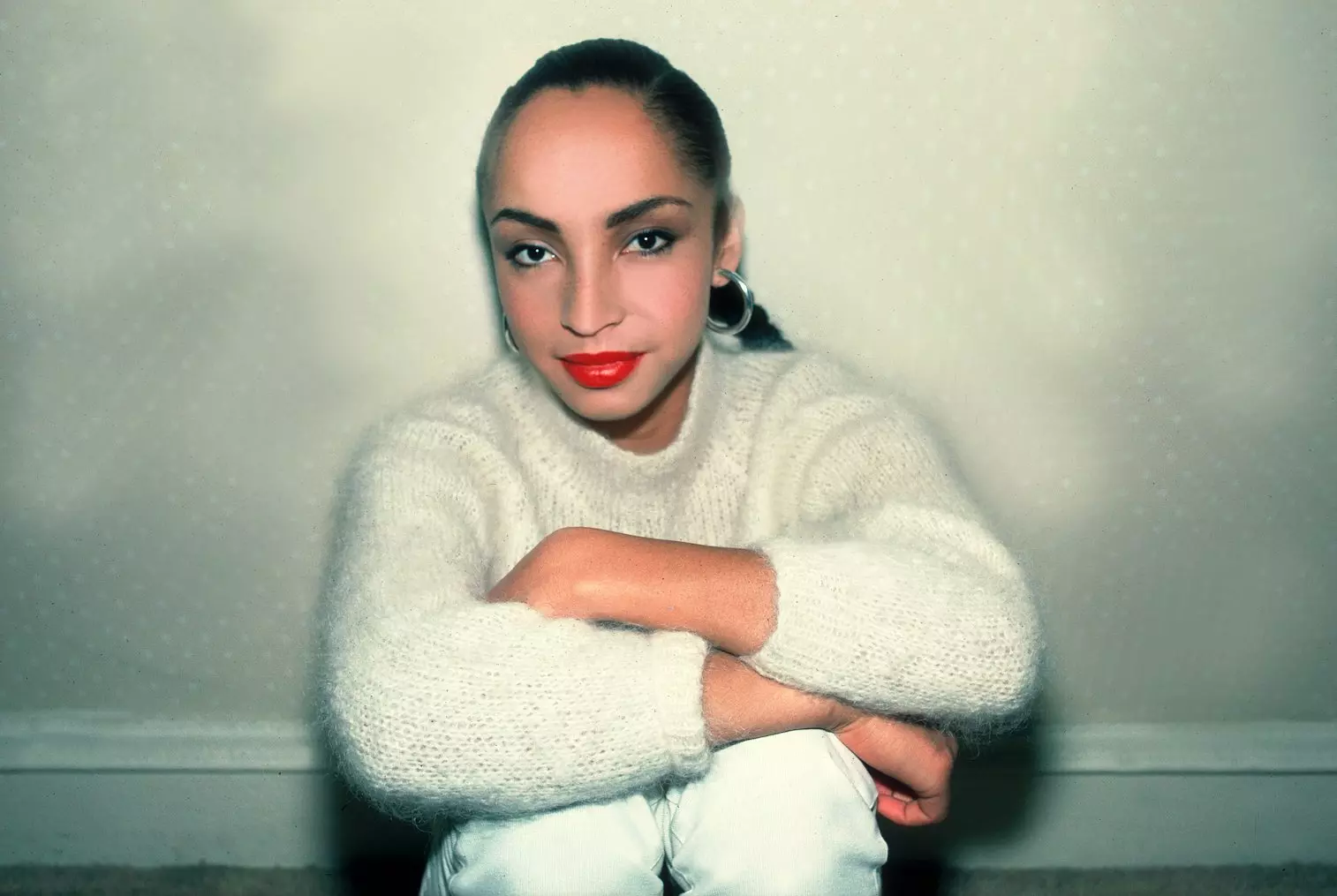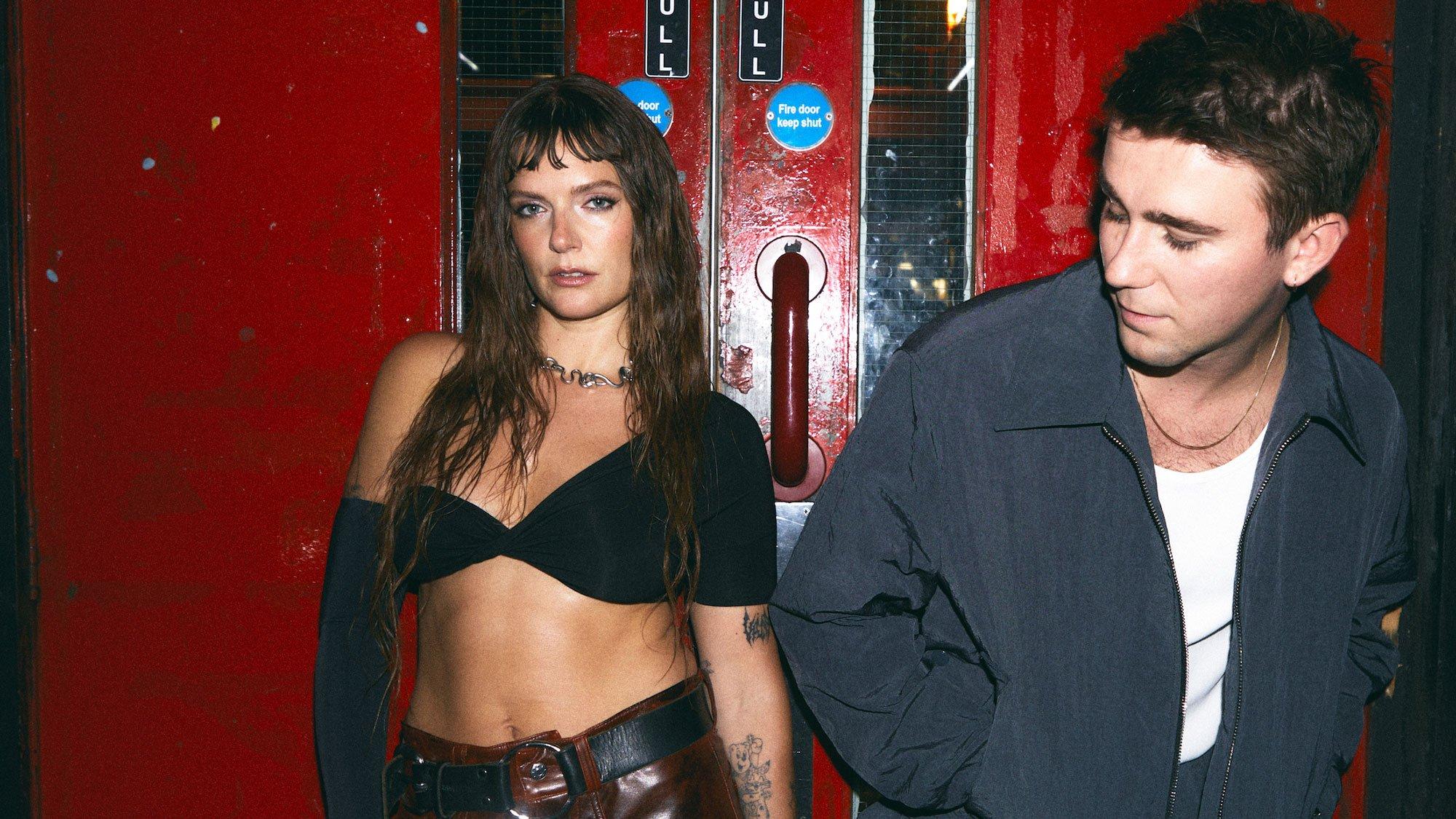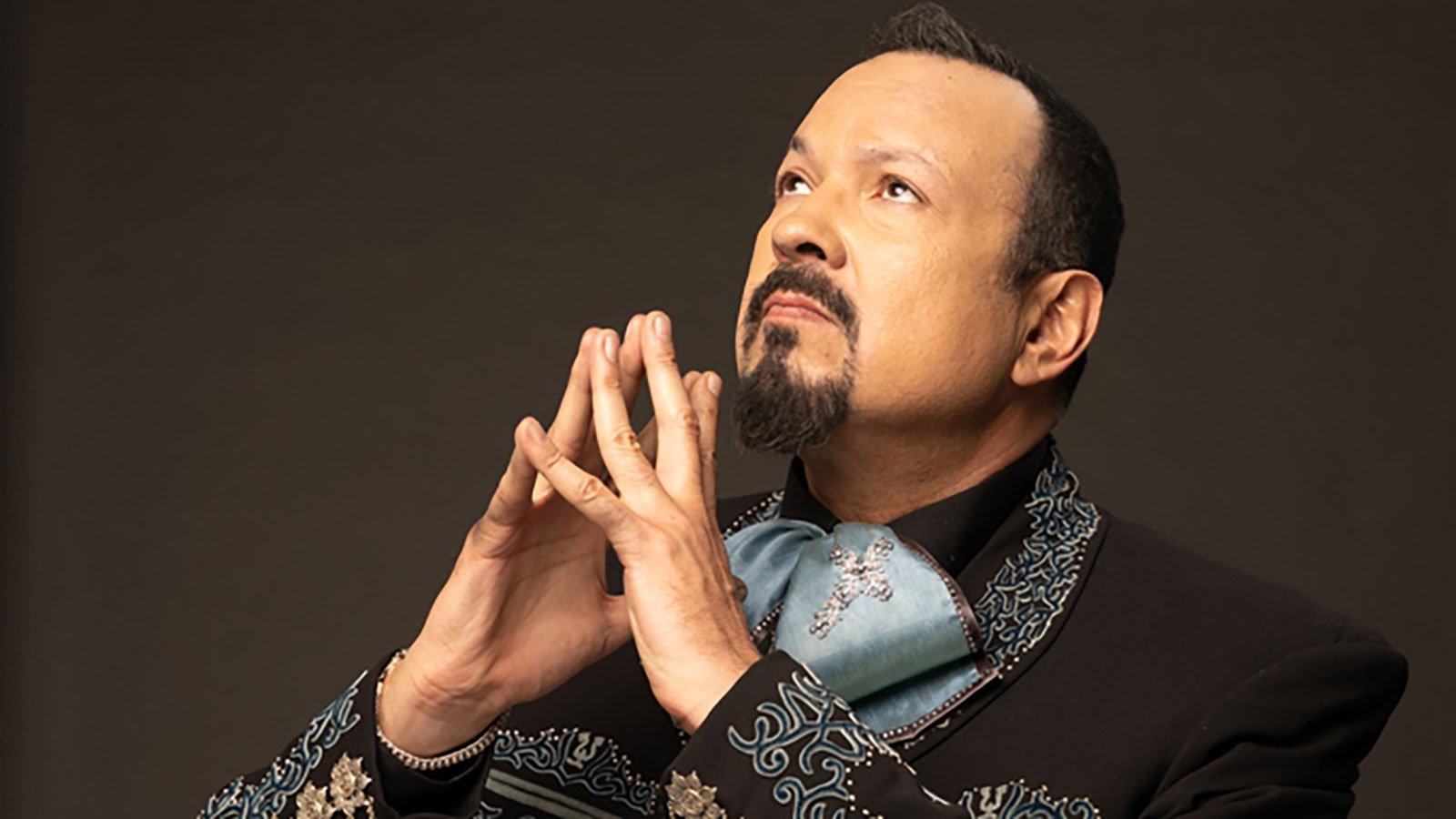HEAT, the new collaborative EP from GRAMMY-nominated singer/songwriter Tove Lo and dance pop producer SG Lewis is 15-and-a-half minutes of pure dance floor ecstasy.
Across the EP's four tracks, which dropped June 14 on Tove Lo’s Pretty Swede Records, Lewis brings in classic, euphoric '90s rave sounds and infectious rhythms. Tove Lo adds her signature sexy lyrics and vocals, with an extra dose of confidence and sass.
"We both really wanted this EP to be a thank you to the queer fans that we share and for the videos and the creative to be an opportunity to amplify those queer voices and to celebrate that community," Lewis says. "I feel very lucky to get to soundtrack moments in these spaces and to also get to learn so much from this community."
The duo gave their fans a first taste of their collaborative magic in 2022 with "Call On Me," a pulsing, urgent hook up tune so good they both included it on their last albums, Tove Lo's Dirt Femme and Lewis' AudioLust & HigherLove. They also teamed up on "Pineapple Slice," a sweet and naughty cut from Tove Lo's Dirt Femme.
Since then, their fans — particularly their loyal queer fans — have been begging for more bops from the pair. Tove Lo, who is bisexual and often brings queer themes into her lyrics and music videos, has been crowned a gay pop icon, and Lewis' joyful, upbeat dance tunes have brought him many fans from the LGBTQIA+ community. They made the HEAT especially for their supportive queer fans, dropping it during Pride month with steamy gay clubs in mind.
Amid teasing their fans with snippets of "HEAT" and memes on social media, Nelly Furtado also dropped a sultry new single in May, "Love Bites," featuring none other than Lewis and Lo.
The fun and ease Tove Lo and Lewis feel working together oozes from each of their collaborations. Since they first got together in the studio, the "Busy Girl" artists have become fast friends. Their love for sweaty dance floors, '90s electronic music, and danceable pop bops creates a rich, shimmery sonic landscape for their music.
GRAMMY.com caught up with the two artists on Zoom from their Los Angeles' homes, for a lively, laughter-filled chat about crafting gay club friendly dance pop bangers, their magic in the studio together, and what having the support of the queer community means to them.
What do you hope fans get when they finally hear Heat and where are you imagining it being played?
Tove Lo: I hope that all our fans get completely floored and that they play it at the pre-party, in the club, and at the after-party — in all the spaces where they want to be free and sweaty and have fun.
SG Lewis: From what I've heard so far from people who've listened to it, people can feel the fun that me and Tove were having in the studio making it. I hope that it serves as a soundtrack for hedonism, celebration, freedom, and some really sweaty moments.
I was wondering about the specific sonic references and inspirations that you brought to the EP. I definitely heard some squelchy acid house on "Heat" and on "Desire" I got some Cascada and early trance, '90s Ibiza vibes.
SG Lewis: I have been reading this book by Sheryl Garratt called "Adventures in Wonderland," which tells the story of the birth of acid house and how it was brought back to the U.K. from Ibiza and exploded into this huge moment in the '90s and grows into trance. As a result, I was just digging through a lot of the records from then.
Also, Tove and I were DJing a lot at parties and with our friends and stuff. A lot of those records that I was playing, Tove was as well; we were arriving at the same point through different avenues. There was a shared interest in those sounds and that nostalgia, so we really wanted to channel a lot of those two genres in this project. It happened very naturally through the music that we were playing and DJing together. We hardly even ever had a conscious conversation about how it would sound.
Tove Lo: When it comes to writing the melody and lyrics, from my end, there's never a conscious, "Oh, I want to make a vocal like this." I just kind of [go with] what is speaking to me in this track and whatever comes up. I don't know where it's coming from, but it's probably coming from us DJing at 4 a.m. and it reminds me of that moment, it's unlocking this thing. [Chuckles.]
Lyrically, I wanted it to feel confident and sexy. I step over the line a few times in certain songs, which is the way I love to write. You really encourage that free space. I don't think you've ever said, "Ah, it's too far. You even said [imitates British accent], "Can it be hornier?" [Everyone laughs.]
I feel like we are very aligned with what we wanted it to be. I don't want to say there's not a deeper message, it's more just us loving music, loving to make music together, and our joint fans kind of telling us that we need to make more music together. So, we are responding to this request. [Both giggle.]
How would you describe the magic of when you two get in the studio together? Because obviously, there's something there that's special.
Tove Lo: It's weird, but it's kind of like when you meet someone that you just really click with. As people, we get along really well and like to hang out, and we have a similar sense of humor, so it is a fun time. But just because you're good friends, you don't necessarily make good stuff together. It's hard to explain it, but it's a feeling of being totally at ease with someone, but still wanting to do your absolute best. That's how I feel when I work with Sam. I want to really impress him, but I feel very comfortable doing the journey together.
SG Lewis: It's a really rare sensation in the studio. This is a terrible analogy, but it's like playing a game of tennis with someone and every time they return the ball, they send it dead down the center in the right position. Every time I make anything that I'm excited about, whether it's a chord sequence or a drum pattern or something, I know that when I pass that to Tove, she's going to deliver something incredible back that I haven't even been able to imagine yet. That's where the energy comes from for me, it's this kind of back-and-forth of excitement in the process. And it's just honestly so much fun making music together. I can't say that I've had such a natural studio chemistry with many people before.
What do you admire most about the other's artistry, music and approach to music-making?
Tove Lo: With Sam, I'm always very impressed with how — I think I've said this to you probably 100 times — you can make it feel like there's the energy of something new, but it still has nostalgia in it. I don't know if it's the samples you're using or you're just inspired by certain tracks, but it gives me a feeling of, "Oh, I remember this, but I haven't heard it before," which is what everyone is trying to do, but it's really hard to. And you just live and breathe music. It goes into performing and DJing too, where you'll DJ for seven hours. You just love music and you know the history. It really gives me a lot of inspiration.
SG Lewis: I'm very flattered. Tove is an expert song crafter and creator of pop music, but to me, she has something that no other writer of pop music has. She is able to speak about things with a freedom of expression in her songs. She'll say things that other artists wouldn't dare to say, out of the rules of society. I think it's why she is such a queer icon and her music is so embraced in the queer community, because she harnesses this freedom of expression in her writing that is so raw. It gives her pop music an edge that no other artist on the planet has for me.
Tove Lo: Sam, that's so nice. Can I get this recording [to listen to] when I'm having a bad day?
Can you speak to your love of crafting gay club friendly dance pop bangers, and how you harnessed that specific energy — like you said, the sweaty, free, hedonistic club space — on HEAT?
Tove Lo: Sam and I share a lot of fans in the queer community, and they basically demanded that we make more music together. So we're like, "Well, this is going to be for you then." So this is a celebration of our queer fans, and also a thank you for the support that we've both had from the community. And I'm obviously part of the community myself, being a queer woman, but Sam, you're like a guest in the community.
Also, you have to remember, the queer community will choose you. It's not something you can barge your way into. If your music resonates, you're in and the support is always there. My most loyal fans are part of that community. And there's a similar love for that kind of music that you can let go and be yourself; it's a safe space to just really live out your true self in whatever way that may be.
SG Lewis: As Tove mentioned, I've been so fortunate to be a guest in these spaces and to receive so much love from the queer community. I'm a nerd about music, and I study the history and who's making what, and I love that about the queer fans that I have; they're reading the notes on who produced what records and who wrote this and the collaborations. There's a level of obsession with pop music that we both share.
What does having the support of the queer community mean to you as artists?
Tove Lo: For me, it feels like there's a mutual love and respect. When I do my own tours, a huge part of my crowd is queer and I feel like I can fully be myself and really feel free and comfortable in my own skin and body and to express myself the way I want. I feel like they always have my back and I always have their backs. Also, all the cool s*** starts in the queer community. They're paving the way for a lot of artists and creators. They're the ones discovering everything first.
SG Lewis: Speaking to queer friends of mine and artists that I work with, anyone in that space has had to fight to express who they are, and there's an element of bravery in even being who they are and the expression of themselves. As a result, the thing that I feel so lucky to get to witness is that freedom of expression in the queer community that is so, so powerful. That's why these spaces and these parties have such an incredible, amazing energy; everyone in that space has acquired this ability to express themselves in a way that you don't see elsewhere. To have the support of that community on a musical level is a massive privilege — to have music that is celebrated in those spaces where that extreme expression and joy and euphoria is happening is really a dream.
I want to know the story of how you two met, because in one of the press releases, I think it said it was on the dance floor.
Tove Lo: Yeah, it was, but Sam was at my house before we met. I think I was out of town, but my boyfriend and my roommates had a party or something. And Sam's like, "Where am I? Why is there a bunch of Tove Lo art on the walls?"
SG Lewis: I was at a Phoebe Bridgers concert and I was standing next to this tall, lovely Kiwi man named Charlie. We were just shooting the s*** and I was like, "This guy's the best dude ever." I ended up at their place for an after-party. I was like, "Why is there so much Tove Lo memorabilia on the wall?" He was like, "I think you're working with my wife next week."
Tove Lo: That says a lot about me, having a bunch of my own sh-t on the walls. [Laughs.]
During the pandemic, I put up every concert photo I have of all the crowds, because I didn't think anything was going to come back. So, my walls are full of shots of me from behind me with a huge crowd. Maybe this is a little narcissistic. I might need to take it down.
SG Lewis: But it's also lots of photos of your friends. It's a celebration of your life, not a shrine to yourself.
Tove Lo: I can't remember the full order, if we then just met in the studio, but we have spent a lot of time on the dance floor together.
SG Lewis: We've had some crazy times, and I have a feeling this EP is going to lead to plenty more.
Talk to me about your CLUB HEAT [parties], because I know you've had one or two and there's more coming.
Tove Lo: We did one in London when we also did the video shoot, which was a crazy day, so much fun.
SG Lewis: Our second one is on Thursday night in L.A.
Tove Lo: The first one was so fun. It was just exactly what I hoped for: completely packed, sweaty, us [DJing] back-to-back, and me not being able to help myself and getting on the mic and singing way too often, because I love the stage. It feels exactly how the EP feels — sweaty, fun, club. I'm trying to think of the perfect word, but it's just all those words.
SG Lewis: The format of the CLUB HEAT parties is a back-to-back DJ set with a performance element from Tove. I think it gives this really amazing, unique, chaotic party energy. Those moments where she performs really elevates the energy in the room. It's honestly utter chaos in the best way possible. There was literally sweat coming off the ceiling in the London one.
Are you planning on doing more?
Tove Lo: They're gonna be [announced] last minute. There's not going to be planning far out, but we're going to be doing more.
SG Lewis: I think there's a kind of pop-up element to them. As the nature of the party being chaotic, I think the planning of them is also quite chaotic. I think that it'd be criminal not to do this in New York, which feels like the epicenter of chaotic, sweaty parties.
What was it like working with [producer and DJ] Totally Enormous Extinct Dinosaurs [TEED] on the EP, who did some of the co-production? How did he help bring it all together or bring out different things in the music?
SG Lewis: Orlando [Higginbottom, aka TEED] is not only one of my closest friends, he's very much a mentor of mine. He's taught me so much about production. He is one of my favorite artists and producers, and as much as he gets very sheepish when I tell him that, we're constantly playing each other's music.
While the EP came together from Tove and I in the room together, he was the outside voice who was able to take those songs from 90 to 100 percent, whether it's a synth line on "Heat" or "Busy Girl" was both of us producing together. That was a beat that we started outside of the room that I then played to Tove, and she absolutely killed it on.
I have to ask about the new song with Nelly Furtado, "Love Bites." How did that come together? What was it like working with her and having the three of you in the studio together?
SG Lewis: I was put in contact with Nelly because there was word that she was working on new music. Before I know it, I'm texting with Nelly Furtado, and I was like, "What's going on? This is insane." It was immediately apparent that she was extremely friendly and cool.
Tove Lo: She's way too chill. I'm like, you can be so much more of a diva.
SG Lewis: She was like, "Oh, send me some beats." As a producer, you hear this all the time. You send 10 beats and you never hear anything ever again. I sent this pack of beats. I go to bed and I wake up the next day, and she's written a full song on one of the beats and sends me the vocals.
Fast-forward six months, we'd worked on a couple of things, but none of them had really hit the bullseye yet. I reworked one of the things we were working on, reproduced the beat, and ended up with this idea I was really excited about, but it didn't have a chorus. I was going to ask Nelly if I could send it to Tove. Before I had the opportunity to discuss this with Nelly, I sent the idea without the chorus. And Nelly was like, oh, "Could you send this to Tove Lo to potentially write a chorus on it?"
Tove Lo: I dropped my phone, it's still cracked from it. I was like, "Are you kidding?" And [I thought the] beat was so sick. And her voice and the "ey ey," it's just like Nelly! Sam and I went in the studio and wrote the chorus together and sent it to her. And she's like, "I love this. Can we please get in the studio and finish it together?" We had a late session at 7 p.m. I think she's a night owl. I [was excited to] find someone who wants to work night hours with me. The three of us worked all night; recorded it, tweaked it, finished stuff. She's so lovely. She's got such a distinct voice. I was a little bit star-struck when she got on the mic.
SG Lewis: Her voice is so distinctive and iconic. She has the superstar tone where you know it's her immediately. It's really surreal as a producer to get to work with vocals like that from two iconic pop stars on one song.
How long was the period of time from when she asked you to send beats to y'all getting in the studio together?
SG Lewis: It was about six to nine months total. Everyone's sort of all over the world, so it was really cool for it to all come together in this moment, in the studio, in-person, together.
I love that Nelly's embracing a different sound and really daring to try different stuff, because it'd be so easy for her to try and replicate her past successes. But she's just too badass for that.
How Rising Dance Star Dom Dolla Remixed The Gorillaz & Brought Nelly Furtado Back To The Dance Floor

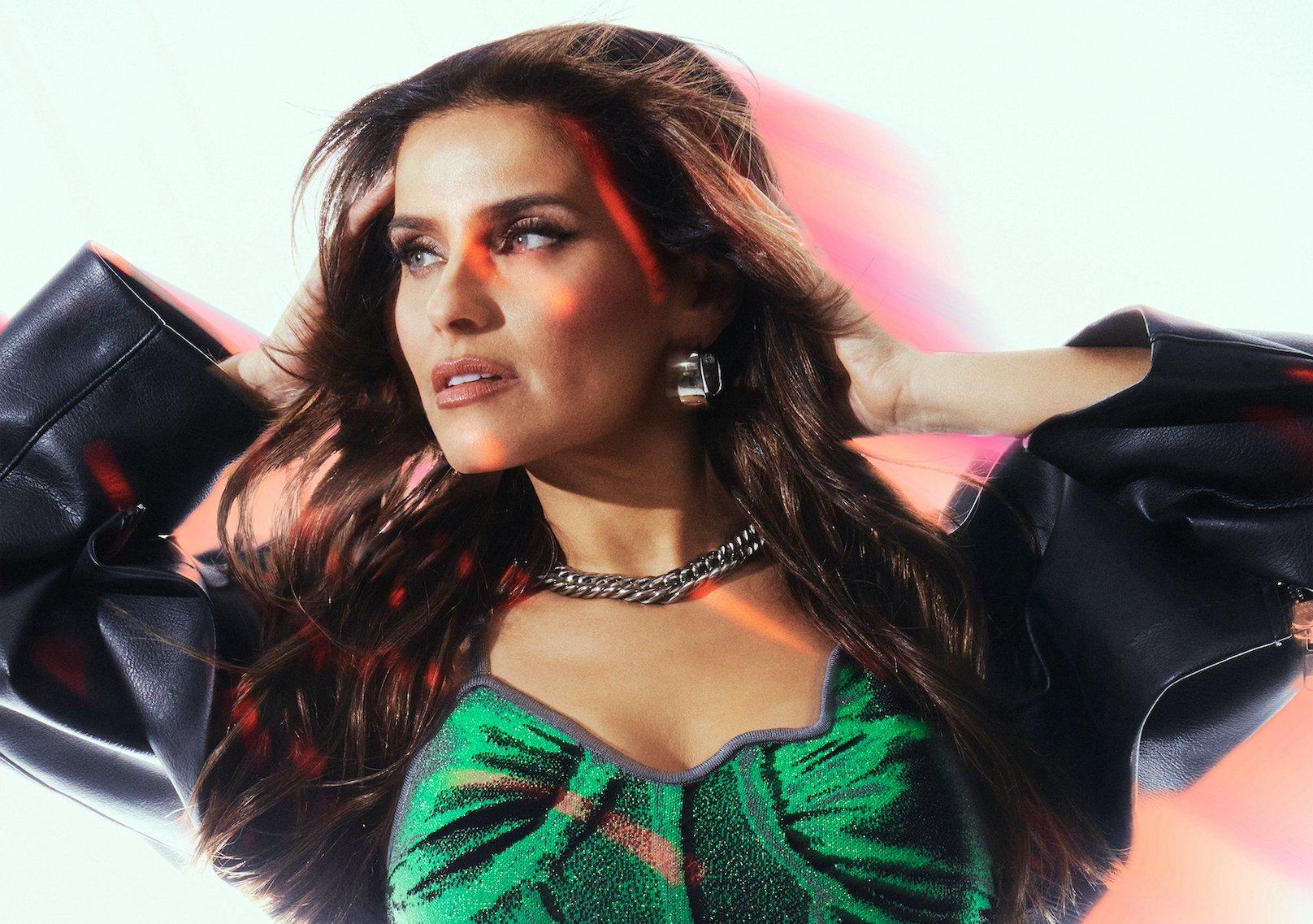
.webp)
